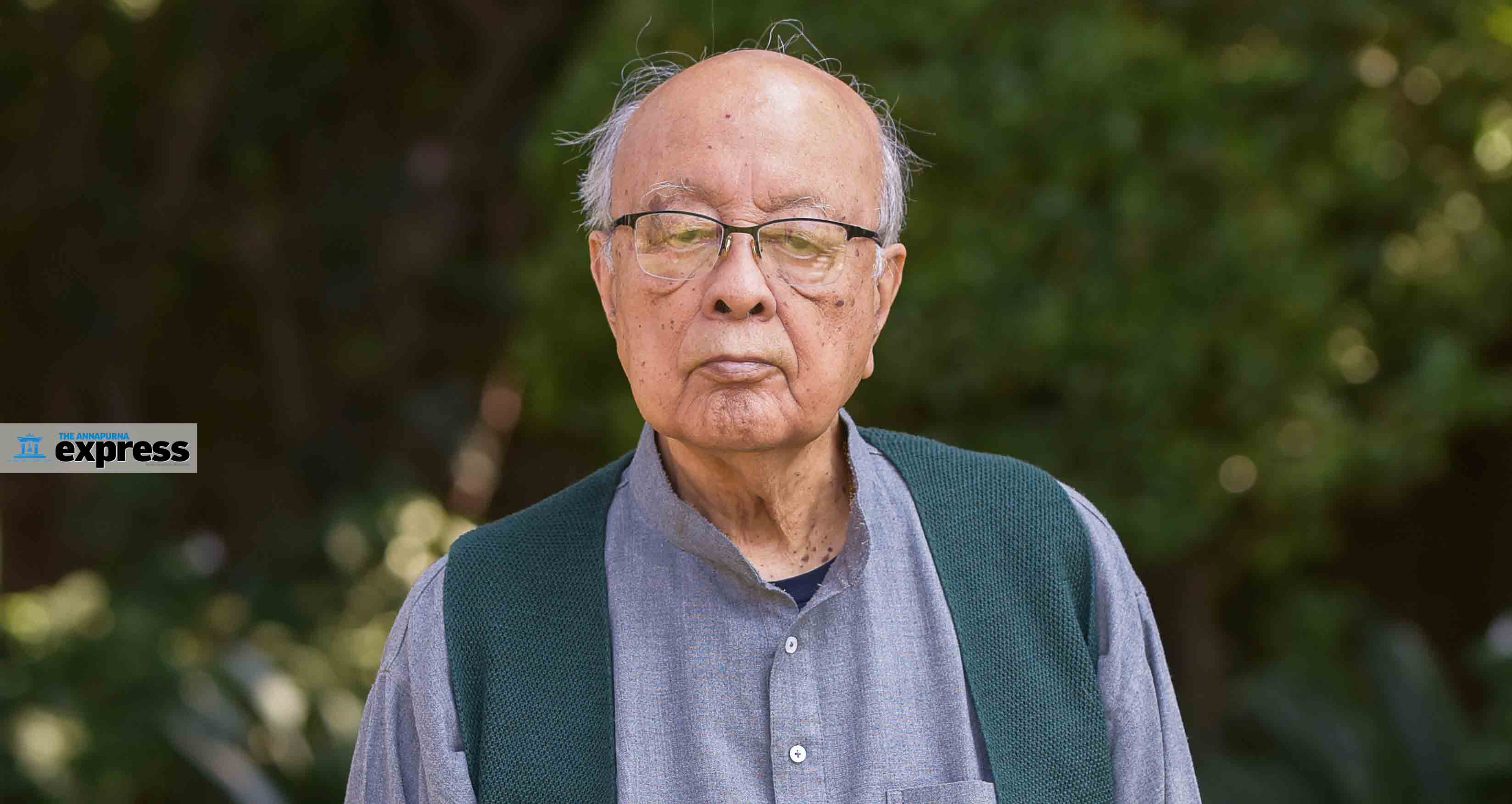Birth: 8 Jan 1928, Kathmandu
Death: 5 Feb 2023, Kathmandu
Himalaya Shumsher Rana, the first governor of Nepal Rastra Bank, breathed his last on February 5 in Kathmandu, leaving behind a rich legacy. The reputed economist (95) passed away on Sunday in the course of treatment at the Thapathali-based Norvic Hospital. While he will primarily be remembered for his role in the establishment of the central bank, Rana has many other laurels under his belt. He was instrumental in establishing Himalayan Bank, Nepal's first private sector bank after 1990, and setting up Gorkha Brewery and Himalayan Distillery. Rana, the great-grandson of the then Prime Minister Dev Shumsher Rana, held the position of the governor from 26 April 1956, to 7 February 1961.
After a successful tenure as finance secretary, Himalaya Shumsher Rana was offered the job of governor at Nepal Rastra Bank by the then King Mahendra. As there was no central bank in the country, the king gave him a book that had a draft of the Banking Act. But Rana requested that he would need some time to study the acts of central banks of foreign countries and only start the process of establishing Nepal’s central bank.
At first, he established a central office, an office for banking transactions, and a note department. After almost six months of homework, he was appointed the governor on 26 April 1956. With a small team, Rana started working to realize King Mahendra’s dream. He had two major concerns: to introduce Nepali notes in the Tarai, and stabilize an exchange rate between Rs and InRs. During those days, the Nepali currency was not in use in the Tarai, so much so that it was customary to take the land revenue and immigration duties in Indian currency.
In such a situation, replacing Indian notes with Nepali ones was a challenging task. Unless there was a stable exchange rate between Rs and InRs, it was not possible to circulate Nepali currency in the southern plains. The team researched for three years and came up with an exchange rate of Rs 160 for InRs 100. To date, Nepal uses the same rate. Rana and the team then established currency exchange centers from the east to the west. Nepali notes were printed at Nashik Security Press in India back then. After the establishment of the central bank, the central bank called for an international tender because the revision of the notes being printed in India was a must.
A proposal from a company from the UK was considered the best as it came up with a new design for notes bearing the pictures of famous places of Nepal. It was very nice and attractive. The notes printed in India also did not have the security thread; it was added on to the notes printed in the UK. After serving as the governor for four years and eight months and almost two months since King Mahendra banned political parties and started a dictatorial regime, he was sacked on 8 Feb 1961 because of being a supporter of democracy.
Rana then worked as a representative in various countries from 1962 to 1986 under the United Nations Development Program. He worked in Pakistan, Sri Lanka, America, Afghanistan, Myanmar, and Indonesia.
In an ApEx Pioneers column of The Annapurna Express, Rana said ever since he became the finance secretary, he had worked tirelessly. “After retirement, I tried to spend my time playing golf and reading books. But I got bored after six months and decided to start a business. I established the Gorkha Brewery Company and brought international beer brands like Tuborg and Carlsberg to Nepal. I also established the first private bank in Nepal, Himalayan Bank Ltd.” Among many national and international recognitions, he was conferred with the title of The Order of Japan (The Order of the Rising Sun, Gold and Silver Star) for his contribution. Former governor Chiranjibi Nepal described Rana’s demise as a huge loss for the banking sector. “Without him, the Nepali currency would not have found its place for a long time,” he says.
“The establishment of the first private bank was itself a milestone back then as it opened the door for aspiring bankers.” Rana’s friend Kiran Pyakurel remembers him as an admirable man. “Though born to a Rana family, he always advocated for democracy, which also cost him the post of governor,” he says: “I am inspired by how he never lost his learning spirit and has managed to remain curious all his life. No matter his age, he is always curious to learn about new things.” Rana is survived by two daughters and two sons.











